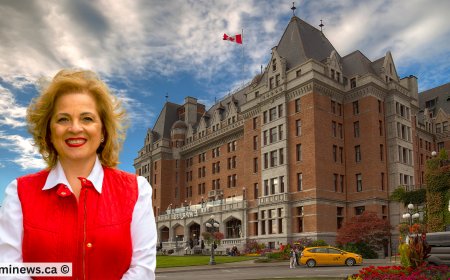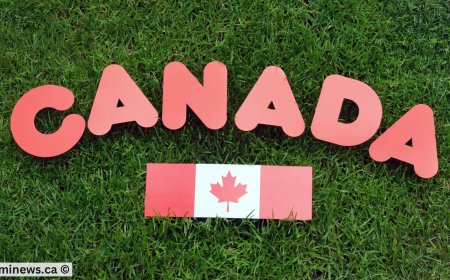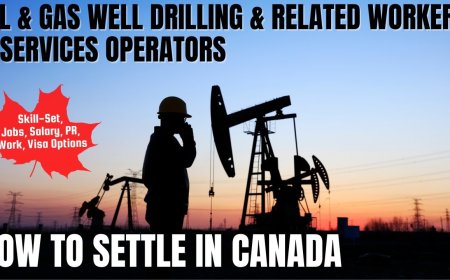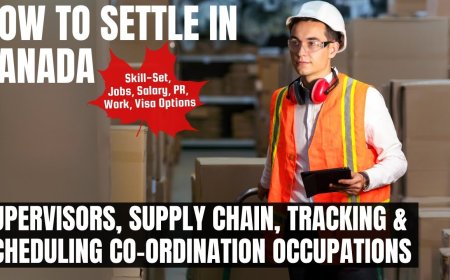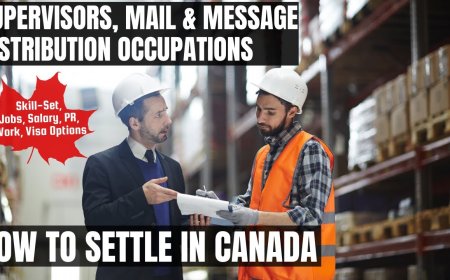Boilermakers Migration to Canada: A Detailed Guide on Salaries, Professional Responsibilities, and Preferred Locations
Welcome to the pathway to Canada immigration for skilled professionals and trade workers. This guide is specifically tailored for Boilermakers looking to work and settle in Canada, offering a deep dive into the essential aspects of immigration and employment in this field.
Introduction
Boilermakers play a crucial role in various industries by constructing, installing, and maintaining boilers, tanks, and pressure vessels. In this article, we will explore the career and immigration prospects for Boilermakers in Canada. We will cover the profile description, main job duties, education and license requirements, skills needed, median age and retirements, salary details, and possible visa options for Boilermakers with the National Occupation Classification code (NOC) 7234. Whether you are considering a career in Canada as a Boilermaker or seeking opportunities for immigration, this article will provide valuable information to help you make informed decisions.
What is the Profile Description of a Boilermakers as per the Canadian National Occupation Classification (NOC) Standards?
Boilermakers are skilled professionals who specialize in the fabrication, assembly, erection, testing, maintenance, and repair of various heavy-metal structures such as boilers, vessels, tanks, towers, and heat exchangers. They work in industries such as boiler fabrication, manufacturing, shipbuilding, construction, and electric power generation. Boilermakers play a crucial role in ensuring the safe and efficient operation of industrial equipment and facilities.
What are the Main Job Duties of a Boilermakers in Canada?
- Read blueprints and specifications to plan sequence of operations
- Layout plate, sheet steel, or other heavy metal and mark bending and cutting lines
- Set up and operate heavy-metal working machines to cut, shape, and form metal
- Fit and weld metal parts together to fabricate boilers, vessels, tanks, and other products
- Direct activities of workers during fabrication, assembly, installation, or repair of structures
What are the Education, Certifications, and Licensing Requirements to Work as Boilermakers in Canada?
To become a Boilermaker, individuals typically need to have a high school diploma. Completing a three- to four-year apprenticeship program or gaining over four years of work experience in the trade along with some relevant high school, college, or industry courses is also required to be eligible for trade certification. Trade certification is mandatory in Nova Scotia, New Brunswick, Quebec, and Alberta, while it is optional in all other provinces. Additionally, qualified boilermakers can obtain a Red Seal endorsement by successfully completing the interprovincial Red Seal examination.
What Essential Skills are Required for Boilermakers to succeed in Canada?
To be successful in the profession of Boilermakers, individuals must possess a range of essential skills. This includes the ability to plan the sequence of operations, develop templates, and lay out patterns for cutting and shaping metal. Boilermakers must also have the skills to mark lines on plate, sheet steel, and other heavy metals, set up and operate heavy-metal working machines, fit and weld parts together, and erect and install boilers and heavy-metal products according to specifications. Additionally, they must be able to repair and maintain boilers and heavy-metal products, direct hoist or crane operators during installation, fit plate or sheet steel work, perform informal inspections of completed welds, off-load, shelter, and transport calandria, install containment liner panels, fuel channels, and perform stress relieving acts for vessels. Boilermakers also need to be skilled in assembling and disassembling hydraulic and lattice boom cranes, rigging and hoisting equipment, and in erecting and dismantling scaffolds and other platforms.
What is the Median Age and Retirement Age for Boilermakers in Canada?
It appears that there is no specific data available regarding the median age and average retirement age of skilled professionals working as Boilermakers. This could be due to a variety of reasons such as the data not being collected or reported consistently across industries. Without this information, it may be challenging to make accurate predictions or insights about the demographics of Boilermakers in terms of age and retirement trends. It is important for organizations and researchers to gather and analyze this data to better understand and support this skilled profession.
How many job openings exist for Other Boilermakers in Canada, and what's their provincial distribution?
Currently, there is a total of 1 job opening for Boilermakers in Canada. The province with the highest number of job openings for this profile is Manitoba, with 1 opening. This indicates that there is a high demand for Boilermakers in Manitoba, making it a great opportunity for individuals looking to pursue a career in this field. On the other hand, the province with the lowest number of job openings for Boilermakers is the rest of Canada, with no job openings currently available. Overall, individuals interested in becoming Boilermakers should consider looking for opportunities in Manitoba to increase their chances of finding employment in this field.
What is the hourly wage or salary of Boilermakers in different Provinces of Canada?
In Canada, the wages for Boilermakers vary by province. In British Columbia, the high wage for Boilermakers is $48.00, the median wage is $43.35, and the low wage is $33.11. In Alberta, the high wage is $47.00, the median wage is $43.77, and the low wage is $32.00. In Saskatchewan, the high wage is $46.69, the median wage is $44.10, and the low wage is $39.00. In Manitoba, the high wage is $48.00, the median wage is $43.00, and the low wage is $36.00. In Ontario, the high wage is $48.91, the median wage is $42.51, and the low wage is $26.00. In Quebec, the high wage is $43.35, the median wage is $41.47, and the low wage is $30.35. In New Brunswick, the high wage is $45.00, the median wage is $39.82, and the low wage is $35.25. In Nova Scotia, the high wage is $45.00, the median wage is $41.00, and the low wage is $34.17. In Newfoundland and Labrador, the high wage is $45.00, the median wage is $40.00, and the low wage is $34.92. Overall, Boilermakers in Canada can expect to earn varying wages depending on the province they work in.
What are the various visa options available for Boilermakers migrating to Canada?
Boilermakers looking to migrate to Canada have various visa options available to them. They can apply for the Express Entry Visa Category, which is a point-based system that assesses applicants based on factors such as age, education, work experience, and language proficiency. Boilermakers can also explore Provincial Nominee Programs, where provinces and territories in Canada nominate individuals with skills and experience that are in demand in their region. Additionally, there are Employer Sponsored Work Visas that allow Canadian employers to hire skilled workers from abroad, including Boilermakers. Boilermakers can directly apply under these programs to immigrate to Canada. There may also be other visa options currently open for Boilermakers. To know more about these visa options and discuss your migration plans in detail, book an appointment with our professionals today.
Have Questions or Need Assistance?
If you have any queries or require assistance with your immigration plans, we're here to help. Our experienced immigration consultants are ready to provide personalized guidance tailored to your specific needs.
Don't hesitate to reach out and schedule an appointment today. Whether you're seeking clarification on immigration processes, exploring visa options, or need support with documentation, we're dedicated to assisting you every step of the way.
Book an appointment with our team to discuss your immigration goals and receive expert guidance for your journey to Canada.
What's Your Reaction?
 Like
0
Like
0
 Dislike
0
Dislike
0
 Love
0
Love
0
 Funny
0
Funny
0
 Angry
0
Angry
0
 Sad
0
Sad
0
 Wow
0
Wow
0



